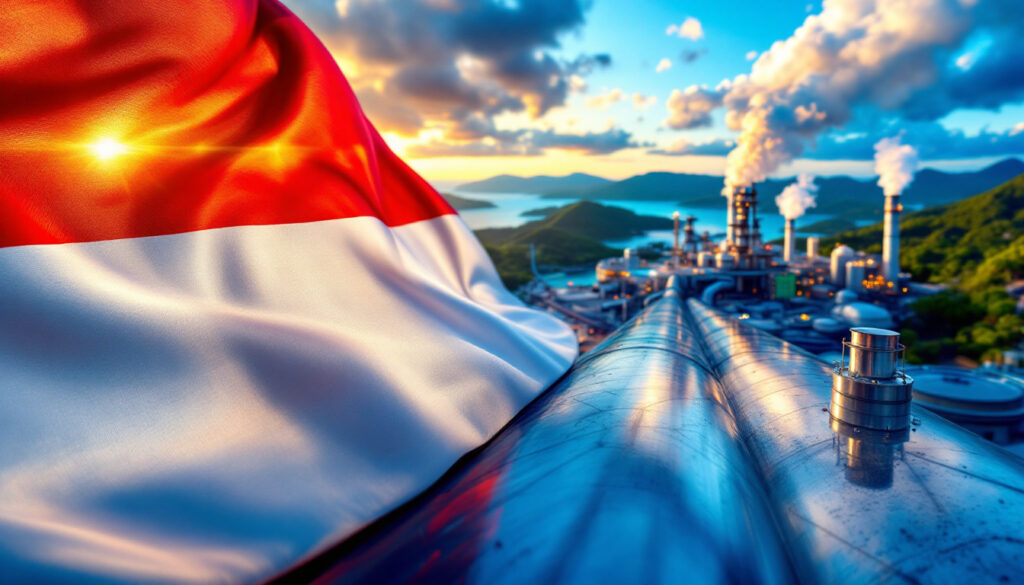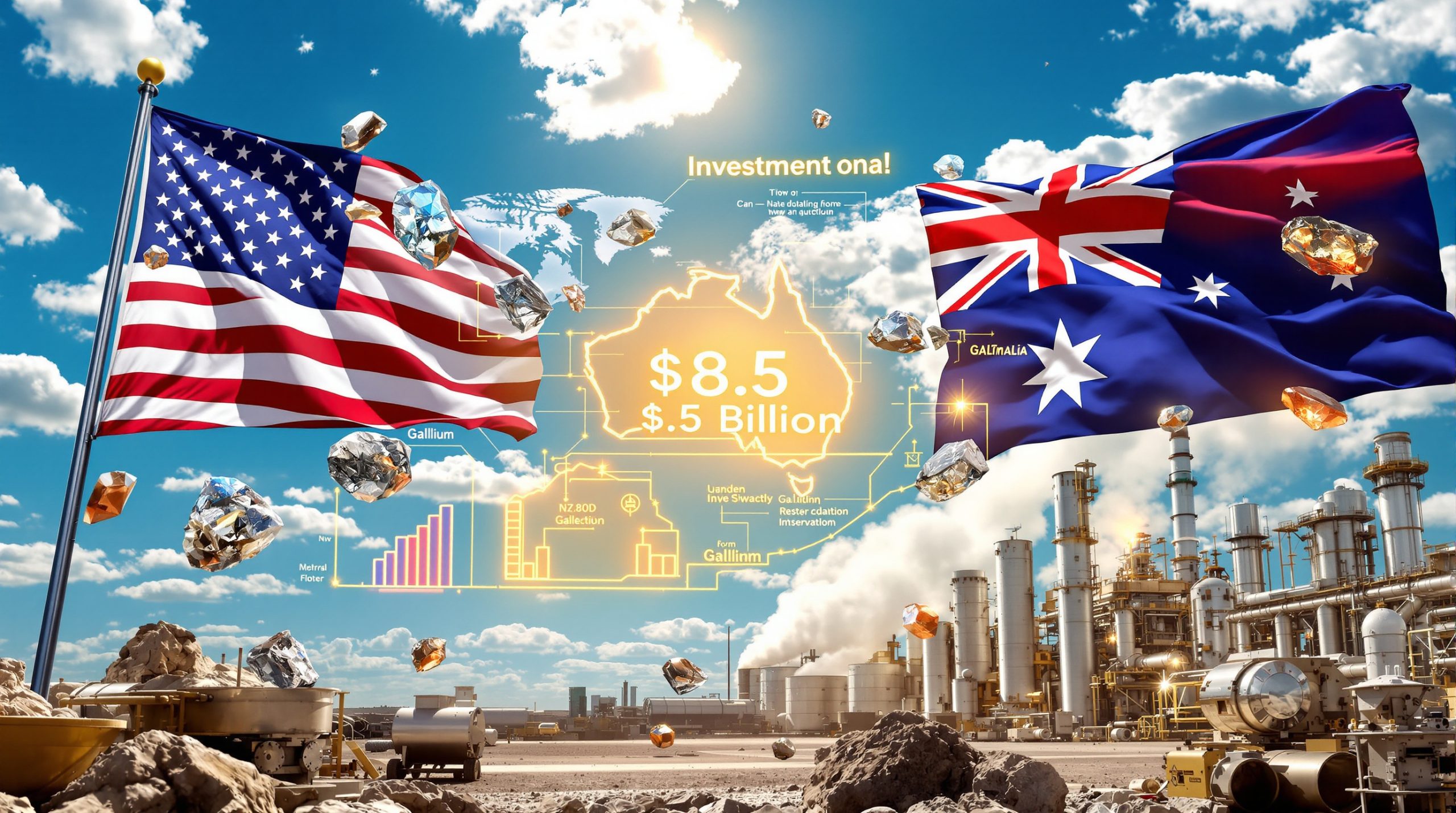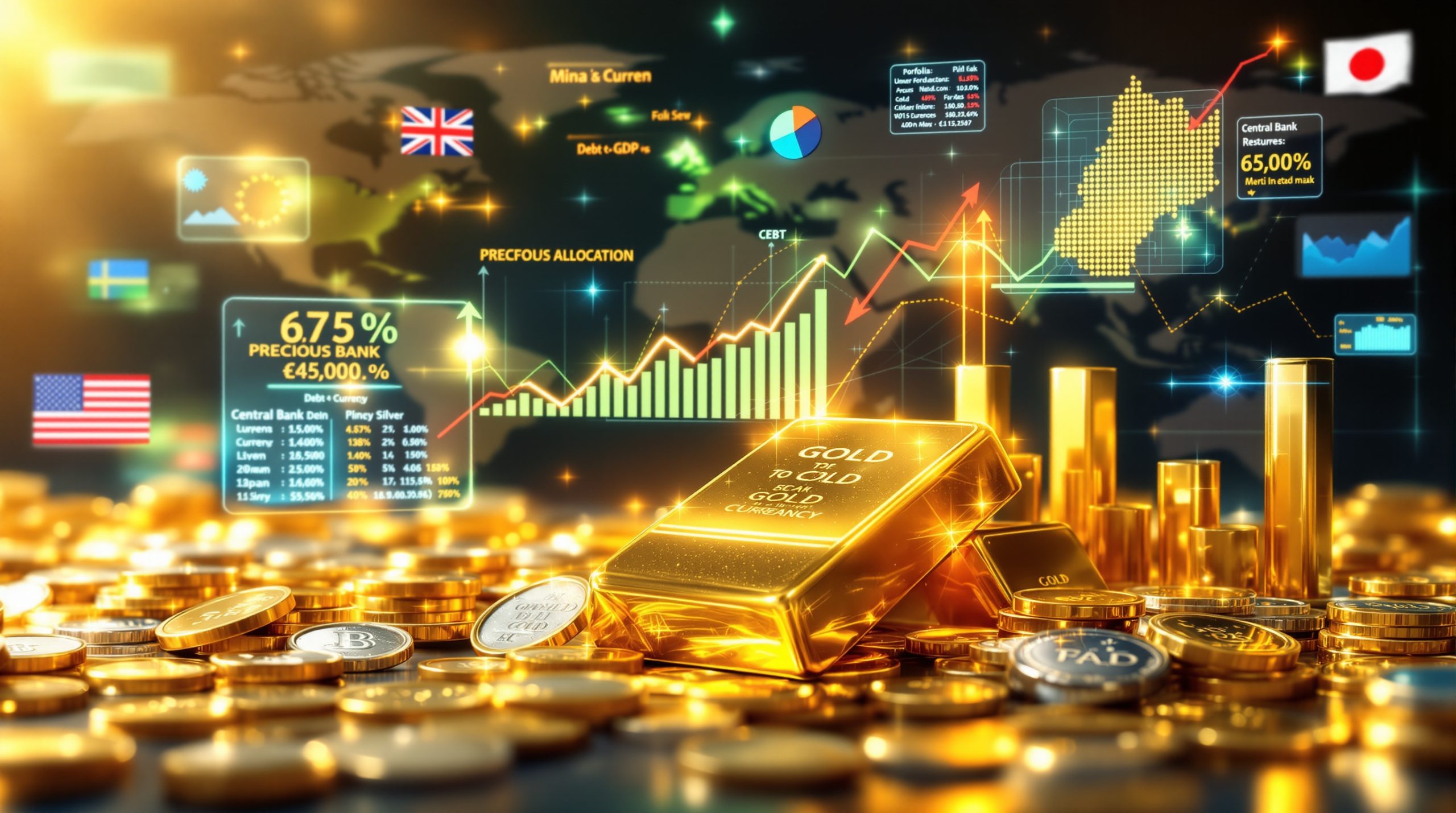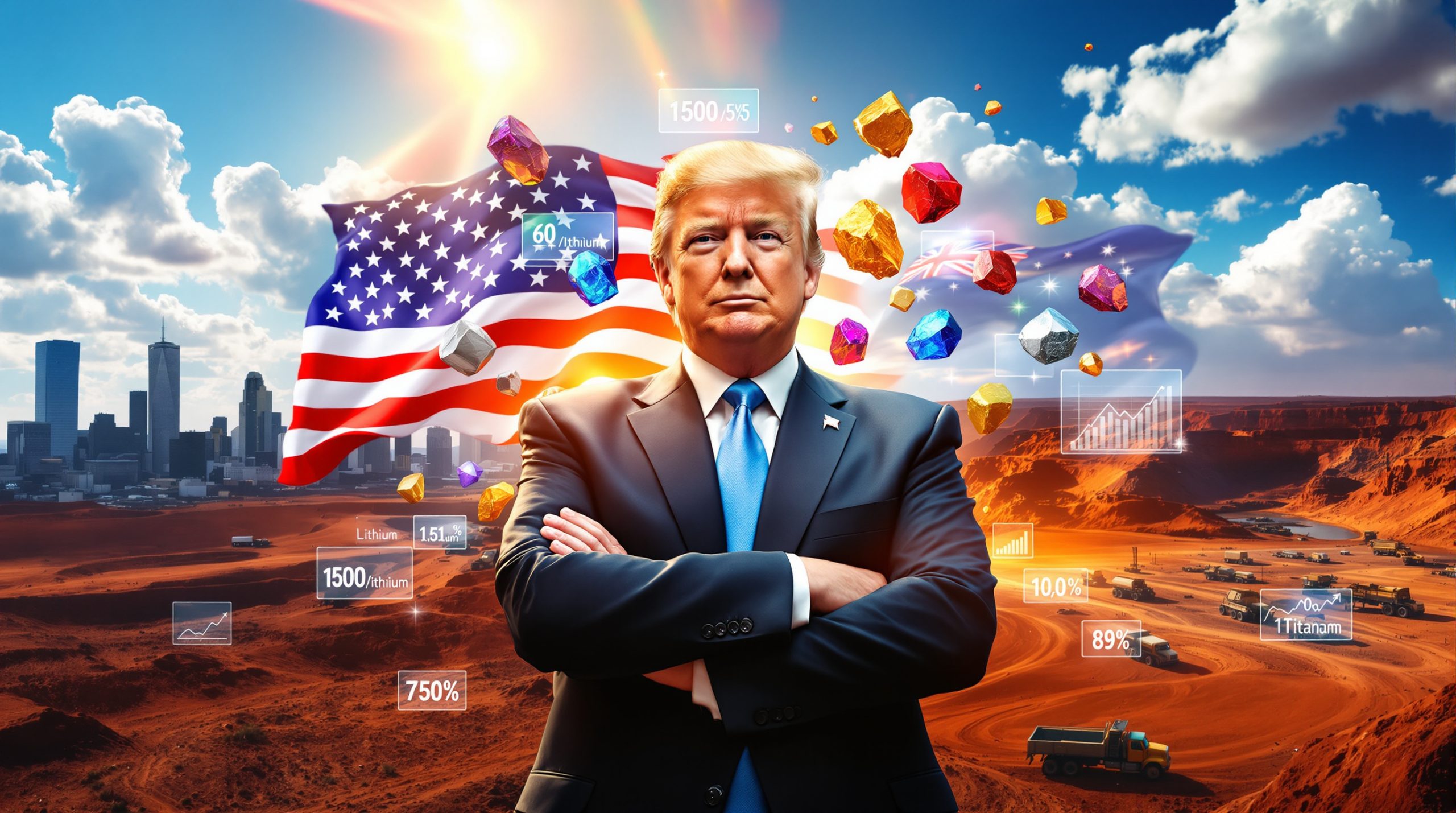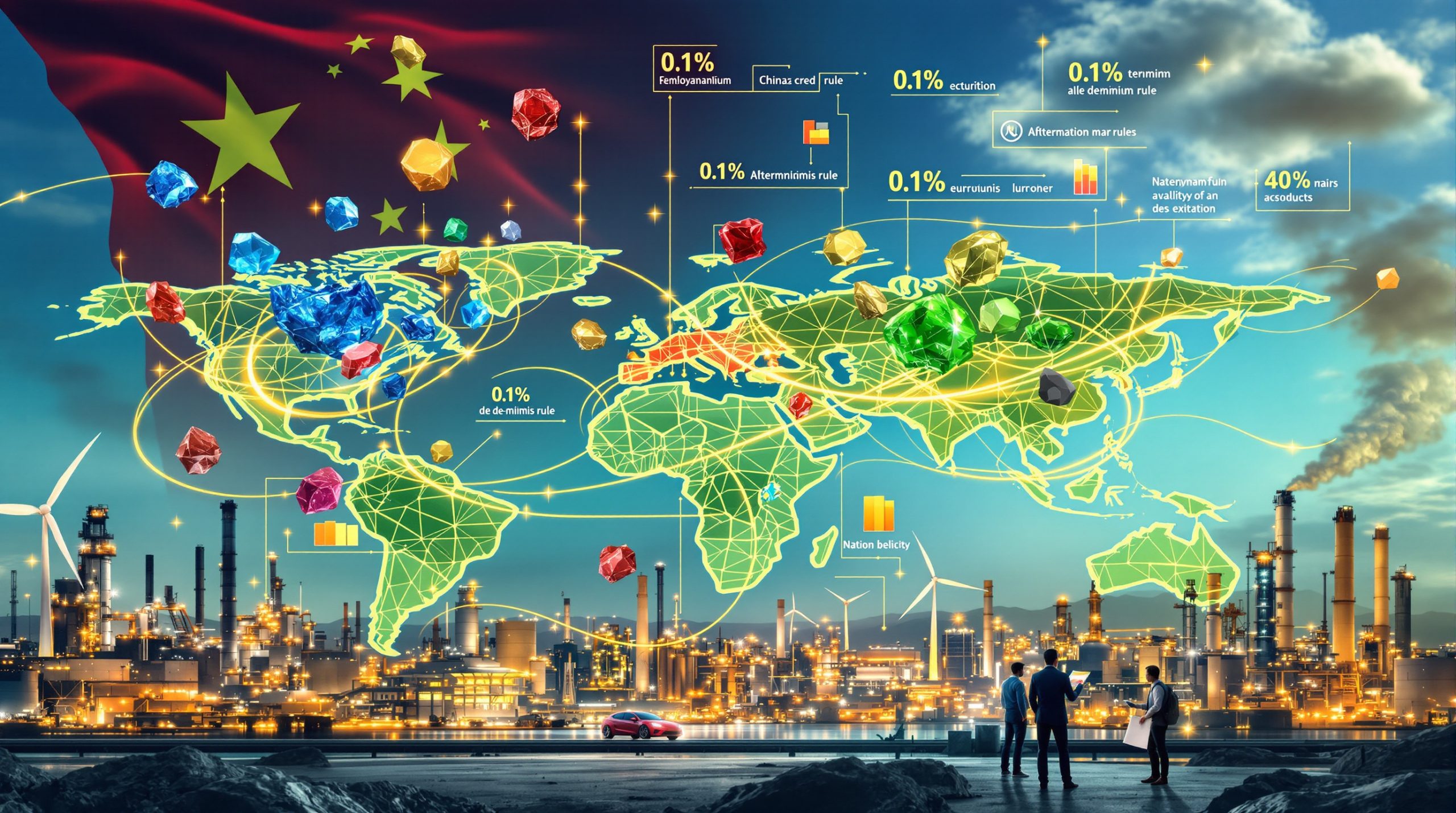What is Indonesia's Strategic Nickel Partnership with Eramet?
Indonesia's state investment fund Danantara and French mining giant Eramet are negotiating a landmark partnership to acquire stakes in a High Pressure Acid Leach (HPAL) nickel processing facility. This collaboration represents a significant development in Indonesia's strategic efforts to strengthen its position in the global battery metals supply chain while creating value from its vast nickel resources.
The partnership comes at a critical time when global demand for battery-grade nickel continues to surge amid the electric vehicle revolution. With Indonesia holding approximately 21 million tonnes of nickel reserves—the world's largest—this deal could reshape supply dynamics for this essential battery metal.
The Emerging Nickel Deal: Key Components
The negotiations center on acquiring a significant stake in an HPAL plant located in the Weda Bay Industrial Park in North Maluku province. This facility is currently majority-owned by Chinese firm Zhejiang Huayou Cobalt Co., a major player in global battery metals production. The plant specializes in producing battery-grade nickel specifically tailored for electric vehicle production.
According to industry sources, stakeholders aim to sign a memorandum of understanding by the end of May 2025, though discussions remain fluid. Danantara would make this investment through state-owned Mining Industry Indonesia, leveraging the sovereign wealth fund's strategic financial capabilities with the expertise of the national mining entity.
The Weda Bay facility processes approximately 3.4 million wet tonnes of ore annually, producing 72,000 tonnes of nickel per year, with 42% meeting battery-grade specifications. The plant also generates 5,400 tonnes of cobalt annually as a valuable byproduct. The initial capital expenditure for the facility was approximately $2.1 billion, with operational costs around $11,200 per tonne of nickel based on 2024 figures.
Who Are the Key Players in This Strategic Partnership?
Danantara: Indonesia's New Sovereign Wealth Fund
Danantara represents Indonesia's ambitious vision for economic development under President Prabowo Subianto. Established in February 2025, this sovereign wealth fund received approximately $20 billion in seed funding aimed at investing in strategic sectors including natural resources, infrastructure, and food security.
This nickel deal would mark Danantara's first major investment since its inception, demonstrating the fund's commitment to implementing Indonesia's resource nationalism strategy. The investment aligns perfectly with Indonesia's broader economic initiatives to capture more value from its abundant natural resources rather than exporting raw materials.
"Danantara was specifically designed to transform Indonesia's raw material advantages into strategic industrial capabilities," noted Rosan Roeslani, Indonesia's Deputy Finance Minister, in a recent statement. "The nickel sector represents our most immediate opportunity to establish Indonesia as a critical node in global supply chains."
Eramet: French Mining Giant's Indonesian Strategy
For Eramet, this partnership represents a strategic pivot following several challenges in its Indonesian operations. The French mining company already operates one of Indonesia's largest nickel mines in North Maluku, but faced setbacks when it canceled a similar HPAL project with German chemical company BASF in 2024 due to regulatory hurdles.
The company has also struggled with Indonesian government approvals to increase its mine output beyond the 2023 production cap of 325,000 tonnes, despite having access to resources capable of producing 450,000 tonnes of nickel equivalent annually. This new partnership could potentially resolve these challenges while strengthening Eramet's position in the battery materials supply chain.
This deal would secure Eramet's processing capabilities for its nickel output, making it less vulnerable to export restrictions and allowing it to capture more value from Indonesia's downstream processing strategy.
Zhejiang Huayou Cobalt: Chinese Battery Materials Leader
As the current majority owner of the target HPAL facility, Zhejiang Huayou Cobalt holds a critical position in this negotiation. The Chinese firm has established itself as a major global supplier of battery metals with significant investments across Indonesia's nickel processing landscape.
Huayou Cobalt has expressed interest in further Indonesian investments, particularly following South Korean battery manufacturer LG Energy Solution's withdrawal from planned $9.8 billion battery projects in Indonesia. This strategic reshuffling creates opportunities for new partnership configurations in Indonesia's evolving nickel sector.
Why Does This Deal Matter for Global Nickel Markets?
Indonesia's Evolution as a Nickel Powerhouse
Indonesia has undergone a remarkable transformation in its approach to mineral resources. Once primarily an exporter of raw nickel ore, the country implemented export restrictions beginning in 2020, including a 30% export tax, while simultaneously offering tax holidays and infrastructure investments to companies willing to build processing facilities within its borders.
The 2025 Mining Law Amendment further strengthened this position by requiring foreign miners to divest 51% ownership to Indonesian entities within ten years of production—a policy directly reflected in Danantara's proposed investment structure. These measures have successfully increased the value captured from nickel resources, with processed battery-grade nickel sulfate commanding approximately $20,842 per tonne compared to $18,000 per tonne for raw ore.
President Prabowo's administration has designated nickel development as part of the National Strategic Project agenda, allocating $3.2 billion specifically for industrial park development and power grid expansion in North Maluku. The Weda Bay Industrial Park now hosts 12 nickel processing facilities, contributing approximately 15% of global battery-grade nickel output.
Battery Metals Supply Chain Implications
This partnership emerges amid significant geopolitical shifts in battery supply chains. The 2024 U.S.-Indonesia Critical Minerals Agreement grants Indonesian nickel products tariff-free access to U.S. markets under Section 307 of the Inflation Reduction Act, creating new market opportunities beyond Asia.
"Western battery manufacturers are increasingly seeking non-Chinese supply sources for critical materials," explains Dr. Marlene Consuelo, resources economist at the National University of Singapore. "This Danantara-Eramet partnership could provide precisely the kind of alternative supply channel that European and American EV makers are desperate to secure."
The deal could help reduce reliance on Chinese processors like Tsingshan, which currently controls approximately 60% of Indonesia's nickel processing capacity. For European automakers seeking to diversify their supply chains, partnerships like this provide alternatives to Chinese-dominated channels while addressing mineral shortages that could impact the global clean energy transition.
How Does HPAL Technology Transform Indonesia's Nickel Industry?
Technical Advantages of High Pressure Acid Leach Processing
HPAL technology represents a significant technological leap for Indonesia's nickel sector. The process utilizes a three-stage leaching method to extract nickel and cobalt from laterite ores, achieving remarkable 92% metal recovery rates through autoclave reactors operating at temperatures reaching 255°C and pressures of 4,200 kPa.
This technology is especially valuable for Indonesia's predominantly laterite nickel deposits, which typically contain just 1.2% nickel content and are challenging to process through conventional methods. HPAL's 85% energy efficiency substantially outperforms alternative processing methods like rotary kiln electric furnace (RKEF), which achieves only 68% efficiency.
Most importantly, HPAL enables production of 94% purity nickel sulfate crystals that meet exacting EV cathode specifications, compared to just 78-82% purity achievable through traditional ferronickel routes. Eramet's proprietary AMEL® Process further enhances this advantage by reducing sulfuric acid consumption by 18% compared to conventional HPAL operations, lowering operational costs by approximately $450 per tonne.
Weda Bay Industrial Park's Strategic Importance
The Weda Bay Industrial Park has emerged as Indonesia's premier nickel processing hub, strategically located in resource-rich North Maluku province. The industrial zone benefits from purpose-built infrastructure specifically designed for mineral processing, including dedicated power generation facilities, port access, and waste management systems.
The park's integration of mining operations with processing facilities creates significant operational efficiencies, minimizing transportation costs and environmental impacts. Its established ecosystem of suppliers, technical expertise, and support services makes it an ideal location for expanding Indonesia's downstream nickel capabilities.
"Weda Bay represents the crystallization of Indonesia's mineral processing strategy," notes Dr. Bambang Gatot, former Director General of Indonesia's Ministry of Energy and Mineral Resources. "It demonstrates how integrated industrial parks can transform mining economies into manufacturing powerhouses."
What Challenges Could Impact the Partnership's Success?
Regulatory and Political Considerations
Despite its strategic importance, the partnership faces significant regulatory hurdles. Indonesia's 2024 Environmental Ministerial Decree (No. 12/2024) imposes stringent tailings management rules on HPAL operators, mandating zero-discharge systems and environmental bonds of $5 per tonne processed. The Weda Bay facility must upgrade its tailings storage to handle 4.2 million cubic meters annually, requiring approximately $280 million in plant modifications.
The complex regulatory landscape includes overlapping ministerial jurisdictions, with 14 separate agencies involved in various aspects of mining approvals. This bureaucratic complexity creates potential for delays and policy uncertainties that could impact implementation timelines.
Additionally, Indonesia's requirement for 51% domestic ownership within ten years creates complex governance dynamics that must be carefully structured to protect all parties' interests while satisfying nationalist policy objectives. Understanding these dynamics requires thorough global commodity insights and analysis of political factors driving market conditions.
Market and Economic Factors
The partnership faces significant market-related challenges. Nickel price volatility represents a substantial risk, with LME nickel futures fluctuating dramatically between $16,500 and $28,000 per tonne since 2023. These price swings are heavily influenced by Indonesian export policies and evolving battery chemistry preferences among automakers.
A particular threat comes from the growing adoption of lithium-iron-phosphate (LFP) batteries, which contain no nickel or cobalt. These less expensive alternatives are projected to capture 45% of the EV market by 2030, compared to 30% for nickel-rich NMC batteries. This shift could significantly impact long-term demand projections for battery-grade nickel.
Operators of HPAL facilities like the one at Weda Bay are mitigating this risk through cobalt recovery (which has an 85% price correlation with nickel) and extracting valuable byproducts like scandium (worth approximately $3,500 per kilogram) and rare earth elements. Contract structures with automakers including Tesla now commonly include price floors at $18,000 per tonne and annual offtake commitments for 60% of production capacity.
What Does This Mean for Global EV Battery Production?
Supply Chain Resilience and Diversification
The Danantara-Eramet partnership represents a significant step toward creating more resilient and diversified battery material supply chains. By creating non-Chinese processing capacity for battery-grade nickel, the deal addresses mounting concerns about overreliance on single-country supply sources.
For EV manufacturers, particularly those in Europe and North America, this partnership potentially provides access to ethically sourced nickel with lower geopolitical risk profiles. The ability to trace materials from mine to battery becomes increasingly important as consumers and regulators demand greater transparency in EV supply chains.
Industry analysts note that similar partnerships would require approximately $12 billion in additional Western investments to match Chinese processing scale in Indonesia. However, first-mover advantages in securing offtake agreements could provide significant competitive benefits for early participants. Investors looking to capitalize on these developments would benefit from understanding geopolitical investor strategies in these emerging markets.
Future Growth Trajectories
Indonesia's projection of producing 1.4 million tonnes of battery-grade nickel by 2030 would represent approximately 38% of the global battery nickel market. This massive capacity expansion could fundamentally reshape price dynamics and supply security for battery manufacturers worldwide.
The Danantara-Eramet deal includes technology transfer provisions requiring Eramet to train 350 Indonesian engineers in HPAL operations by 2027, building domestic technical capabilities that could enable further expansion of the country's processing infrastructure.
Looking ahead, Indonesia aims to move even further up the value chain, with plans for cathode active material production and eventually complete battery cell manufacturing. The foundation laid by partnerships like this creates the technical expertise, infrastructure, and investment framework necessary for these more ambitious downstream projects. Furthermore, this transformation aligns with broader green mining transformation efforts occurring globally in resource extraction industries.
FAQ: Indonesia-Eramet Nickel Partnership
How might this partnership affect global nickel prices?
The Danantara-Eramet partnership could have several impacts on global nickel markets. In the near term, securing investment for expanded HPAL capacity signals continued growth in Indonesia's nickel output, potentially exerting downward pressure on prices. However, by creating a more diversified supply base for battery-grade nickel, the partnership may help stabilize long-term prices by reducing market concentration.
Battery-grade nickel currently commands a premium of approximately 15-20% over standard LME nickel prices due to limited processing capacity. As more HPAL facilities come online, this premium may gradually decrease, benefiting battery manufacturers while challenging producers' margins. The timing of production ramp-up will determine whether this impact is felt in 2026-2027 or later in the decade.
What makes Indonesia attractive for nickel processing investment?
Indonesia offers an unparalleled combination of resource abundance and policy incentives for nickel processing investors. With 21 million tonnes of nickel reserves, investors gain long-term supply security unavailable in most other jurisdictions. The country's ban on raw ore exports effectively guarantees feedstock access for domestic processors, eliminating a major supply risk.
Government incentives include tax holidays of up to 10 years for qualifying investments, duty exemptions on imported equipment, and land acquisition assistance. The Weda Bay Industrial Park provides ready-made infrastructure, reducing capital requirements compared to greenfield developments.
Perhaps most importantly, Indonesia's strategic commitment to becoming a battery materials powerhouse creates policy consistency that investors value when making decades-long capital commitments. The country's geographic proximity to major Asian battery manufacturing centers provides logistical advantages that further enhance its attractiveness. Those interested in capitalizing on these opportunities should consult a comprehensive mining investment guide to understand the potential risks and rewards.
How does this deal compare to other Indonesian nickel partnerships?
The Danantara-Eramet partnership represents a significant departure from Indonesia's previous nickel development model, which has been heavily dominated by Chinese investors. Unlike arrangements with companies like Tsingshan and CATL, which primarily utilize Chinese technology and management, this partnership incorporates Western technical expertise with Indonesian capital and resources.
The structure utilizing Indonesia's sovereign wealth fund rather than direct government participation creates a more commercially oriented governance model with potentially greater flexibility. The focus on acquiring stakes in an existing facility rather than greenfield development accelerates the timeline for Indonesian participation in battery-grade nickel production.
From a global perspective, this partnership could serve as a template for future resource development collaborations between resource-rich nations and technical partners from developed economies. By balancing national strategic interests with commercial viability, the model potentially addresses both Indonesia's development goals and global supply chain resilience objectives.
Ready to Capitalise on the Next Major ASX Mineral Discovery?
Stay ahead of the market with Discovery Alert's proprietary Discovery IQ model, which instantly notifies investors of significant ASX mineral discoveries, transforming complex data into actionable insights. Explore how historic mineral discoveries have generated substantial returns by visiting Discovery Alert's dedicated discoveries page and begin your 30-day free trial today.
